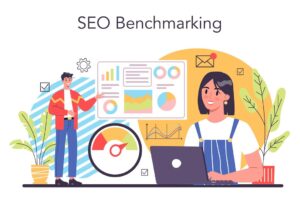Hi guys,
![]()
Today I’d like to talk about my journey with trying to find technical co-founders and what a ballache it has been.
I’ll tell you about my failures and highs and lows – and hopefully, this can serve as a guide for you as you go on your adventure of trying to find a partner for your fledgling startup (or otherwise).
Table of Contents
The Backstory

So I’ll begin by walking you through all of the projects I’ve directly launched myself (all failed ultimately) where there’s been developer involvement:
- Studiobookers
- Meet My Tutor
- Wordpigeon
- Dr. Hidden
Current tools still in play:
- Serpwizz
- Resume Cats
- Omnireach

So as you can see, since 2011/2012 (i.e the last 10 years) I’ve attempted 7 different tech-startups.
What a journey it’s been now I’ve just realised that, and damn lol.
I wish I still figured out some things sooner!
With all of these tools, it’s been a combination of equity partnerships and/or cash to build them all out.
I’ve worked with teams from the UK, Australia, India, Serbia, South Africa, and Pakistan. So I’ve literally been around the world.
I’ve just about made every mistake in the book I believe. With the failures, with the poor choices I’ve made, with the mistakes I’ve made, and everything else that has come with trying to build out a technology-based software product.
Let’s go through my learning’s one by one:
Do you have an attractive proposition or idea?

If you’re a non-technical co-founder it’s sometimes assumed you’ll come forward with an idea.
Certainly, in my instance, this has definitely been the case.
So make sure you do your best (upon having this idea) to document it
Putting Together a Co-Founder Proposal

This is a critical part of finding an excellent co-founder.
It’s also the route to getting a great deal in terms of equity and revenue split and all.
The more you’re able to document exactly what your business idea is – the better it will serve all conversations that you have.
It’s not crazily dissimilar from a business plan – but with much less detail.
Don’t forget – you’re asking your potential technical co-founder to make a massive investment of time and potentially money (in paid development hours) – so demonstrating that YOU and YOUR idea are worthy of investment is important.
Here are some high-level suggestions:
- What is your domain experience? (i.e industry knowledge)
- What resources (other than the idea) do you bring to the table? (e.g marketing/sales/other?)
- What is your idea of the project rollout?
- What networks do you have you can tap into?
- What do you expect from a co-founder?
- What time/resources will you commit to the project?
And here’s the critical part…
What work have you already done to demonstrate:
- The validity of the idea?
- Any background research?
- Market validation?
- Potential return you expect to come from the app?
Putting together these things in the form of documentation (even a video?) will really help support your conversations.
Make sure you align time-investment

One of the challenges I had with my partnership with my co-founder for Studiobookers was that there was a mismatch of time.
This has actually been consistent across many of the developers/partners/teams I’ve worked with – which I could have sold through simply paying an agency (which I’ve done once).
So – going into the arrangement – make sure that you’re both able to commit equal time to a project, or in absence of that – there needs to be some way to reflect your commitment as demonstrated by shares in the business.
Get to know about their time commitments outside of work

One of the mistakes I’ve had to learn from – is that in spite of what someone might tell you – it’s important to be mindful of what their outside commitments are.
For example – the time a family man has Versus someone whose single is very different.
The time someone who is in full-time employment has is very different from someone who doesn’t work full-time.
This continues right through from their availability, whether they work from home/in an office and the like.
So whilst many teams will tell you yes they’re available – be sure to learn more about their background and outside circumstances – just so you know what to expect going in.
Make sure there’s a proper value exchange of either equity, money, or resources

If things aren’t fair. It will break down relatively quickly.
What I mean by this – is that fair is a function of what both teams are happy with the respect to resource allocation, time allocation, money allocation, and the rest of it.
A lot of this is about the gut – and what both sides feel that they from the arrangement – so be mindful of this.
Where Do You Actually Find A Co-Founder?

Well ironically this is pretty much the easy part – there’s a well-established infrastructure for it online as you can see here:
Get registered with all of the relevant websites – and then you can start your search.
Get as far as you can alone

I wish I’d considered this sooner with everything I’d chosen to build. Getting as far as you can without developers involved – is actually pretty doable.
There are big no-code movements (see Bubble.io, see Makerpad.io) which you can use as platforms to build things.
You can create mockups, build a simple wordpress website, build an audience, put together a business plan – you can do ALL of these things before speaking to a single developer.
It’ll also demonstrate to yourself how committed to this idea you are!
If the above seems like too much work to do before you even identify a development team or co-founder – than you need to question how committed to this idea you are anyway.
Many of these things apply to hiring an agency also

Having this plan and presenting it all to an agency might also turn them into equity partners, or at least bring down your development costs and speed up the process.
So in either scenario it’s well worth considering this.
Don’t Get Emotional (To Start)

It’s very easy at the start to get excited – rush out to find a partner – maybe ‘get one’ if you’re a good talker.
Get everyone excited – and then a couple months down the line realise that there are integral problems with your relationship or the structure.
It’s important to start slow to then go fast – and to really make sure you do proper due diligence before moving forward.
It has to make sense for both sides or will only breakdown later
Maybe Hire An Agency/Freelancer First?

There’s nothing wrong with attempting this or doing this first – and you’ll find lots of debate and dialogue about the best way to launch something.
You could have an outsourced development team (especially if it’s an unproven idea) build the prototype/MVP before looking at bringing a co-founder on board.
Pre-Sell Your Idea

The best way to find an amazing co-founder would be through pre-sales – if you’re actually able to build mockups and get the idea all the way through to prototyping and then various iterations with lifetime deal/discounted deal commitments…
Well, you’ll have an extremely powerful recruiting tool on your hands.
This is the hardest road to take but probably also the way to find the most success.
I wish I’d done this (I never have!)
Consider Your Time Investment

This is important for you to consider on both sides of the equation – for all founders.
It’ll likely take 2+ years before you see any traction from the tool.
That’s not a short time…
Are you prepared to stick with the idea for that length of time?
Startup success can take years….
So you need to be HEAVILY committed to your idea – otherwise, time will kill you
Can you work on this consistently

I think one of the mistakes I made was just waiting around for a development team to ‘build the tool’.
I’ve made this mistake multiple times and depending upon how committed you are to the idea – it’s important to be able to consistently WORK upon the idea.
This is actually the case regardless of the type of relationship you have – whether it’s an outsourced agency or a technical co-founder.
It’s important you nurture your startup in order for it to be a success.
Your new baby – and think of it like this – will need love and nurture in order for it to stand on its own two feet – but for the first two years – your baby is going to be pretty useless.
It’s in year 3 the value begins to be realised – and this is the way to think about your startup
Other Considerations

Responsiveness – how quickly will your co-founder respond?
Communication platforms – do they work on the same platforms you do?
Final Thoughts
Well – these are my insights on finding a technical co-founder based upon all of my failures – there are unfortunately plenty lol.
But you learn from that, and I’ve certainly by no means ‘cracked’ anything yet – but I definitely feel I know more than I used to.
Even if upon reflection I made better decisions about finding a co-founder at 25 than I did at 30 in some cases lol.
Anyway – I hope this helps you on your journey 🙂








